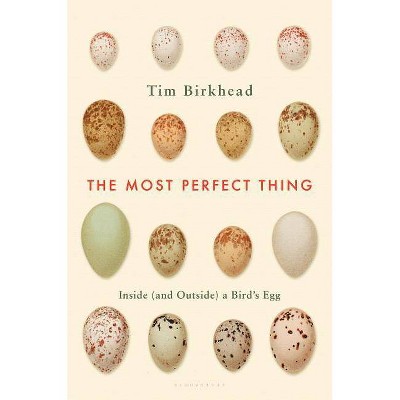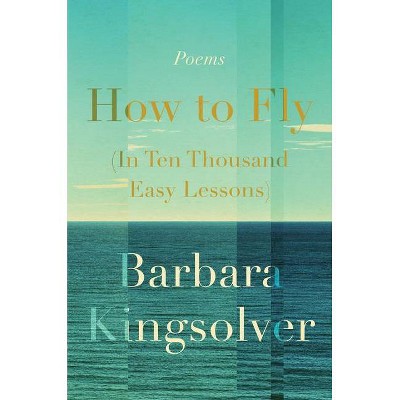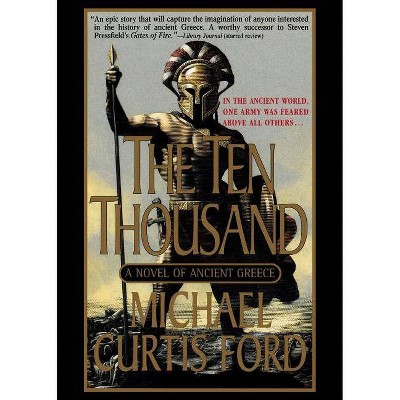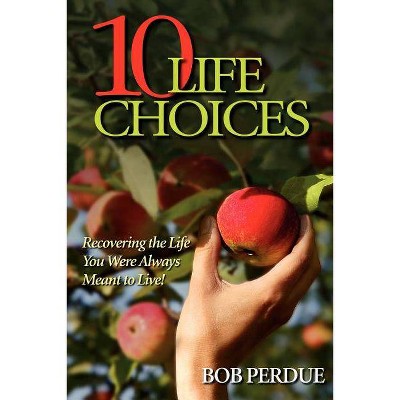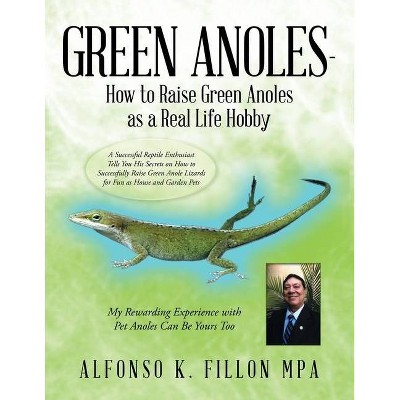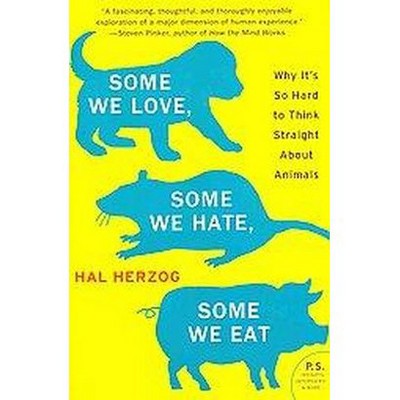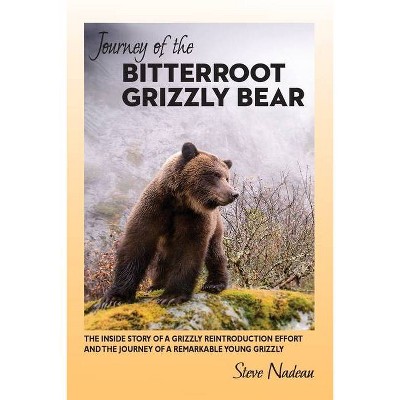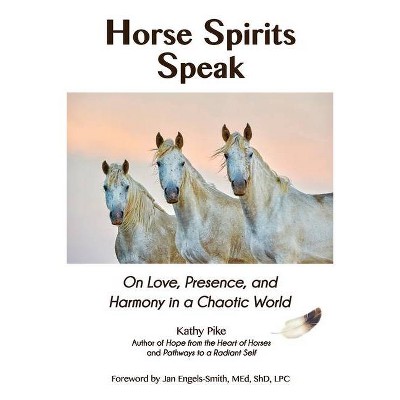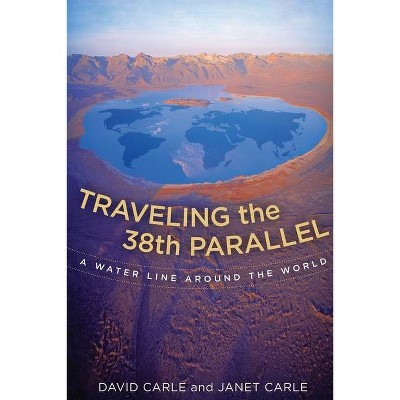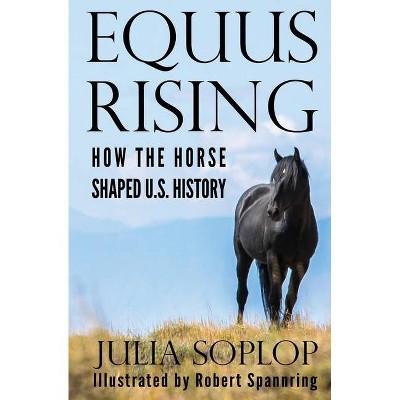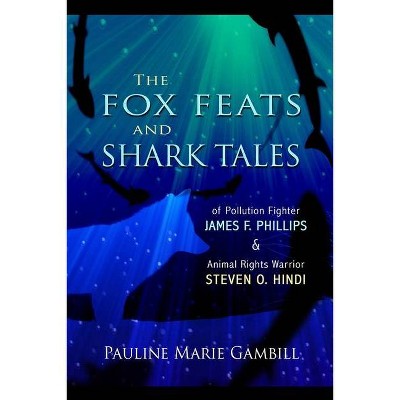Ten Thousand Birds - by Tim Birkhead & Jo Wimpenny & Bob Montgomerie (Hardcover)
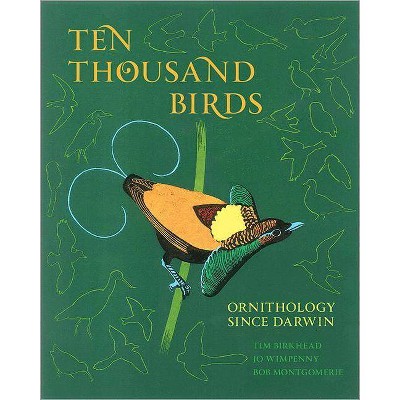
Similar Products
Products of same category from the store
AllProduct info
<p/><br></br><p><b> Book Synopsis </b></p></br></br><p><b>A beautifully illustrated history of modern ornithology</b> <p/><i>Ten Thousand Birds</i> provides a thoroughly engaging and authoritative history of modern ornithology, tracing how the study of birds has been shaped by a succession of visionary and often-controversial personalities, and by the unique social and scientific contexts in which these extraordinary individuals worked. This beautifully illustrated book opens in the middle of the nineteenth century when ornithology was a museum-based discipline focused almost exclusively on the anatomy, taxonomy, and classification of dead birds. It describes how in the early 1900s pioneering individuals such as Erwin Stresemann, Ernst Mayr, and Julian Huxley recognized the importance of studying live birds in the field, and how this shift thrust ornithology into the mainstream of the biological sciences. The book tells the stories of eccentrics like Colonel Richard Meinertzhagen, a pathological liar who stole specimens from museums and quite likely murdered his wife, and describes the breathtaking insights and discoveries of ambitious and influential figures such as David Lack, Niko Tinbergen, Robert MacArthur, and others who through their studies of birds transformed entire fields of biology. <p/><i>Ten Thousand Birds</i> brings this history vividly to life through the work and achievements of those who advanced the field. Drawing on a wealth of archival material and in-depth interviews, this fascinating book reveals how research on birds has contributed more to our understanding of animal biology than the study of just about any other group of organisms.</p><p/><br></br><p><b> From the Back Cover </b></p></br></br><p>"A first-class review not only of the recent history of ornithology but also of the key players involved. No other book of this type comes anywhere near this one in its breadth of coverage and depth of scholarship. <i>Ten Thousand Birds</i> is in a class by itself, and an outstanding read."<b>--Ian Newton, author of <i>The Migration Ecology of Birds</i></b></p><p>"This book fills an important and neglected niche. The mix of science, history, personality, and human interest is unique and one that people will find highly appealing. I found the prose not only engaging but downright riveting."<b>--Walt Koenig, coeditor of <i>Ecology and Evolution of Cooperative Breeding in Birds</i></b></p><p>"This is a hugely impressive book that synthesizes an enormous amount of information in a very accessible and engaging way, and makes an original contribution not only to the history of modern ornithology but also to the general history of biological science since Darwin. It will be an invaluable reference for general readers and students, and offers specialists a paradigmatic case study of the scientific method in action."<b>--Jeremy Mynott, author of <i>Birdscapes: Birds in Our Imagination and Experience</i></b></p><p>"This brilliant, wide-ranging book examines the debates, mistakes, and major conceptual breakthroughs that advanced our knowledge of avian biology. It documents how science proceeds, and skillfully humanizes it. <i>Ten Thousand Birds</i> is not only the best modern treatise on the history of ornithology. It is also a powerful summary of the remarkable biology of birds and what we still don't know. This book is not just for ornithologists or serious birders."<b>--Frank Gill, author of <i>Ornithology</i></b></p><p/><br></br><p><b> Review Quotes </b></p></br></br><br><i>Ten Thousand Birds</i> provides a thoroughly engaging and authoritative history of modern ornithology.<b>---Mike Thornton, <i>Scottish Birds</i></b><br><br>'Hugely impressive' it truly is and it deserves the widest audience.<b>---Bo Beolens, <i>Fatbirder</i></b><br><br>[A] scholarly and thought-provoking book. The authors should be congratulated and the work itself should be on the shelves of anybody remotely interested in the history of natural history and particularly the history of ornithology.<b>---William Noblett, <i>Archives of Natural History</i></b><br><br>A definitive, accessible and sumptuously illustrated primer of biological theory past and present. . . . An inspiring and formidable resource for the historian as well as the fledgling scientist.<b>---Helen Macdonald, <i>Times Literary Supplement</i></b><br><br>A detailed review of the history of ornithology and chronicles the major breakthroughs in the past 150 years and the people who accomplished them. Why undertake such a lengthy and comprehensive review? First, these innovative studies on birds had a broader impact on our understanding of nature and science during the 20th century. Second, much of this history has been buried under an explosion of scientific publications in the past few decades, making it difficult for even the most conscientious researcher to appreciate the deep history of their own field. Birkhead, Wimpenny and Montgomerie go beyond the usual cast of characters and find clever studies published by little-known scientists who were often overlooked or ignored by the big players even in their time. This book was written primarily for a scientific audience, but there is also much of interest to an attentive and patient non-specialist. . . . Delving into the details of the evolution, ecology, physiology and behaviour of birds can be rewarding because it empowers you to enjoy nature even more.<b>---Bridget J.M. Stutchbury, <i>Literary Review of Canada</i></b><br><br>A riveting, entertaining, enlightening and frequently inspirational read. . . . I imagine that <i>Ten Thousand Birds: Ornithology since Darwin</i> is a book which will be bought by every professional or amateur ornithologist the world over. Almost certainly it will be on a wish list of many, many amateur and professional naturalists, whether their specialty is birds, bees, butterflies or other more esoteric disciplines.<b>---Phil Slade, <i>Another Bird Blog</i></b><br><br>All those interested in birds will enjoy reading it.<b>---Gerry Rising, <i>Buffalo News</i></b><br><br>An account that will delight anyone who has studied birds or has an interest in their myriad forms.<b>---Mike Toms, <i>BBC Wildlife Magazine</i></b><br><br>Appealing to both birders and scientists, <i>Ten Thousand Birds: Ornithology since Darwin</i> engages the reader on a journey through the history of modern ornithology from ornithology as a young science to ornithology as it is today. . . . Certainly an appealing read for those interested in ornithology as a science.<b>---Tyler M. Harms, <i>Iowa Bird Life</i></b><br><br>Attention bird lovers: you will certainly want to add this attractive volume to your reference shelf. . . . What makes this book so desirable . . . is its authoritative review of the most pivotal discoveries in avifauna of the last 150 years, especially as they fit into broader general themes of science.<b>---Laurence Marschall, <i>Natural History Magazine</i></b><br><br>Excellent. . . . Generously illustrated. . . . Above all this book provides an account of how science is done in the real world by real people with all of the strengths, flaws and vanities of real people. It shows how good science is done and that even scientific dead-ends and near misses are valuable in contributing to good and lasting agreement in science.<b>---Walter G. Ellison, <i>Maryland Yellowthroat</i></b><br><br>It must be the most complete history of ornithology ever written. It is detailed, dauntingly comprehensive, and opinionated. It not only attempts to summarize modern ornithology--which is to say virtually all ornithology (a graph on the second page shows the number of ornithological papers rising from about 10 in 1865 to nearly 20,000 by the year 2000)--it tells the story of the ornithologists themselves, and interviews important living examples, who present their arguments or stories in their own words.<b>---Stephen J. Bodio, <i>Living Bird</i></b><br><br>It's inspiring to see that research is able to shake up our understanding of things we 'know' to things that 'are.' If you are someone who appreciates the science behind birds, you will love this book. Even if you're a scientific history buff with a casual fancy for birds, you'll enjoy this book. With a beautiful cover, crisp illustrated timelines, and gorgeous chapter paintings, this book will hold a solid spot on any bookshelf.<b>---Steve Brenner, <i>Nemesis Bird</i></b><br><br>Lovingly well-researched and beautifully written. . . . Definitive, absorbing and highly recommended.<b>---Adrian Barnett, <i>New Scientist</i></b><br><br>One of Choice's Outstanding Academic Titles for 2014<br><br>Ten thousand birds directs . . . affection towards the ornithologists themselves. It provides an astute evaluation of the ornithological developments of the past 150 years, that will be of interest to both professional ornithologists and historians of science.<b>---Natalie Lawrence, <i>Studies in History and Philosophy of Biological and Biomedical Sciences</i></b><br><br>The amount of scholarship and research done by these authors is astounding and the book is an amazingly enlightening, readable and enjoyable tome of over 500 pages. . . . This is not a book for bird listers. It is a book for anyone fascinated about birds as organisms in dynamic ecosystems. And it is especially for those interested in how science progresses historically. I highly recommend <i>Ten Thousand Birds</i> for all students and practitioners of biological or ecological sciences and research, for conservationists and naturalists, and for anyone interested in the who, why, how, and when of ornithological research. I was captivated.<b>---Dan Kunkle, <i>Wildlife Activist</i></b><br><br>The authors have walked that fine line between superb research and scientific context, and making their work palpable for mere humans. This a book for the ornithologists obviously, but also for all scientists, for teachers, and even the adventurous. It's for biographers, editors, and writers. Serious readers will also probably enjoy this too.<b>---Alan Speakman, <i>eBirdseed.com</i></b><br><br>The book is also full of useful information. It's chock-full of interesting facts about birds and about how their study has evolved, making it essential reading for the ornithologically minded.<b>---Bob Grant, <i>Scientist</i></b><br><br>The book is as fascinating about the messy business of doing science as it is about the progression of ideas. . . . The book's vast scope inevitably leaves the reader wanting more, which is of course the best way to be beguiled.<b>---Claire Spottiswoode, <i>Times Higher Education</i></b><br><br>The primary intent of the authors is to present the history of modern ornithology in a readable fashion, and in this book they definitely achieve that goal. . . . A marvelous history of modern ornithology.<b>---Gene Wilhelm, <i>Pennsylvania Birds</i></b><br><br>The volume strikes a fine balance between photos and text without being overly photocentric. . . . <i>Ten Thousand Birds</i> is a solid read for students of nature, avian enthusiasts, and scientists.<b>---Howard O. Clark, Jr., <i>Western North American Naturalist</i></b><br><br>There are now many books describing different aspects and interpretations of the history of ornithology. <i>Ten Thousand Birds</i> is an outstanding contribution to the genre, skilfully doubling as a text covering many of the most exciting developments on the subject. Readers of British Birds will find much to enjoy and learn within its weighty pages, at a price that is extraordinarily good value. Highly recommended.<b>---Alan Knox, <i>British Birds</i></b><br><br>This fascinating, wide-ranging synthesis of ornithological history since Darwin brings a mix of science, discovery, innovation, eccentricity, and personality to ornithology. . . . It will be of interest to professional ornithologists, and people interested in animal behavior, physiology, evolution, science history, as well as birders, naturalists, and conservationists. Philosophers of science will find it a fascinating history of the development of ornithological thought since Darwin. I highly recommend the book--I found it fascinating.<b>---Joanna Burger, <i>Journal of Field Ornithology</i></b><br><br>This is a masterly overview of a broad and complex subject, comprehensive and well written. . . . It should be required reading for ornithology students, providing an essential context for their studies, but it will also appeal to the general reader and birdwatcher too, providing ample confirmation of the contribution which ornithological science has made to our understanding of birds and the wider natural world.<b>---Andy Stoddart, <i>Rare Bird Alert</i></b><br><br>This is the best history of ornithology ever. . . . [The authors] explain the often complex, theoretical, or detailed schools of thought and research about birds in entertaining and authoritative ways. Their four-and-a-half-pound monograph is richly illustrated and thoroughly referenced. . . . What might have been a clunky, laborious catalog of often arcane academic endeavors is instead very readable and comprehensible, as well as comprehensive. . . . Most highly recommended for academic and larger public libraries and for all interested in nature and science.<b>---Henry T. Armistead, <i>Library Journal</i></b><br><br>Winner of the 2015 PROSE Award in History of Science, Medicine & Technology, Association of American Publishers<br><br>[A] handsome history of modern ornithology. . . . Birkhead, Wimpenny, and Montgomerie fill 11 readable chapters . . . addressing ecology, behavior, conservation, and other major areas of ornithological science. Their chief achievement, though, is bringing to life the visionary, sometimes controversial, and typically brilliant researchers who have enriched our bird knowledge since the middle of the 19th century--Erwin Stresemann, Ernst Mayr, Julian Huxley, David Lack, Niko Tinbergen, Robert MacArthur, Charles Sibley, Alexander Skutch, Gustav Kramer, Steve Emlen, and many more. An editorial tenet of this magazine has long held that how we learn can be just as interesting as what we learn. This fine book proves the point.-- "BirdWatching Magazine"<br><br>[The] three authors present an enormous amount of information both easily readable and thoroughly engaging, and illustrate the importance of the contributions of individuals throughout history as well as the story of ornithology itself. This is a landmark achievement for the study of ornithology and even those with just a casual interest in birds will lose themselves in these pages.-- "Birding Business"<br><br>An excellent history of the study of birds in modern times.<b>---Matt Merritt, <i>Bird Watching</i></b><br><br>Compulsively readable.<b>---Ben Sheldon, <i>Nature</i></b><br><br>I absolutely love this book as I'm fascinated about the advancement we have made and are making in avian biology and behavior. I have always watched and read almost anything I can find on birds over the years and I simply couldn't put this book down as its such an original idea for a book.-- "Gadget Girls"<br><br>It should be required reading for ornithology students, providing an essential context for their studies, but it will also appeal to the general reader and birdwatcher too, providing ample confirmation of the contribution which ornithological science has made to our understanding of birds and the wider natural world.-- "North Norfolk Birds"<br><br>The charming and witty work fills the needs of academic scientists and researchers as well as serious birders. . . . Anyone interested in natural science, birds, and history will enjoy this book immensely.-- "Choice"<br><br>This is an excellent primer on the movers and shakers of modern avian research but remains readable throughout. . . . There are useful timelines in each chapter showing the development of each strand of ornithology during recent history and plenty of interesting digressions which do not distract from the main thrust of the book. For an understanding of how we got to where we are in today's ornithological world, there are few better guides.<b>---David Callahan, <i>Birdwatch Magazine</i></b><br><p/><br></br><p><b> About the Author </b></p></br></br><b>Tim Birkhead</b> is professor of zoology at the University of Sheffield, where he teaches and conducts research on the behavioral ecology of birds with particular focus on reproduction. He is a Fellow of the Royal Society of London and his books include <i>The Wisdom of Birds</i> and <i>Bird Sense</i>. <b>Jo Wimpenny</b> was a postdoctoral research associate at the University of Sheffield during the writing of this book. <b>Bob Montgomerie</b> is professor of biology at Queen's University in Ontario, where he studies the evolution of plumage colors and sexual behavior in birds.
Price History
Cheapest price in the interval: 21.99 on October 22, 2021
Most expensive price in the interval: 21.99 on November 8, 2021
Price Archive shows prices from various stores, lets you see history and find the cheapest. There is no actual sale on the website. For all support, inquiry and suggestion messagescommunication@pricearchive.us
